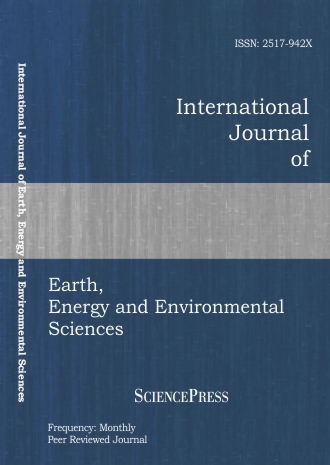
Scholarly
Volume:10, Issue: 6, 2016 Page No: 632 - 635
International Journal of Earth, Energy and Environmental Sciences
ISSN: 2517-942X
791 Downloads
Evaluation on Mechanical Stabilities of Clay-Sand Mixtures Used as Engineered Barrier for Radioactive Waste Disposal
In this study, natural bentonite was used as naturalclay material and samples were taken from the Kalecik district in
Ankara. In this research, bentonite is the subject of an analysis from
standpoint of assessing the basic properties of engineered barriers
with respect to the buffer material. Bentonite and sand mixtures were
prepared for tests. Some of clay minerals give relatively higher
hydraulic conductivity and lower swelling pressure. Generally,
hydraulic conductivity of these type clays is lower than <10-12 m/s.
The hydraulic properties of clay-sand mixtures are evaluated to
design engineered barrier specifications. Hydraulic conductivities of
bentonite-sand mixture were found in the range of 1.2x10-10 to
9.3x10-10 m/s. Optimum B/S mixture ratio was determined as 35% in
terms of hydraulic conductivity and mechanical stability. At the
second stage of this study, all samples were compacted into
cylindrical shape molds (diameter: 50 mm and length: 120 mm). The
strength properties of compacted mixtures were better than the
compacted bentonite. In addition, the larger content of the quartz
sand in the mixture has the greater thermal conductivity.
Authors:
References:
[1] IAEA Effects of heat from high-level waste on performance of deep